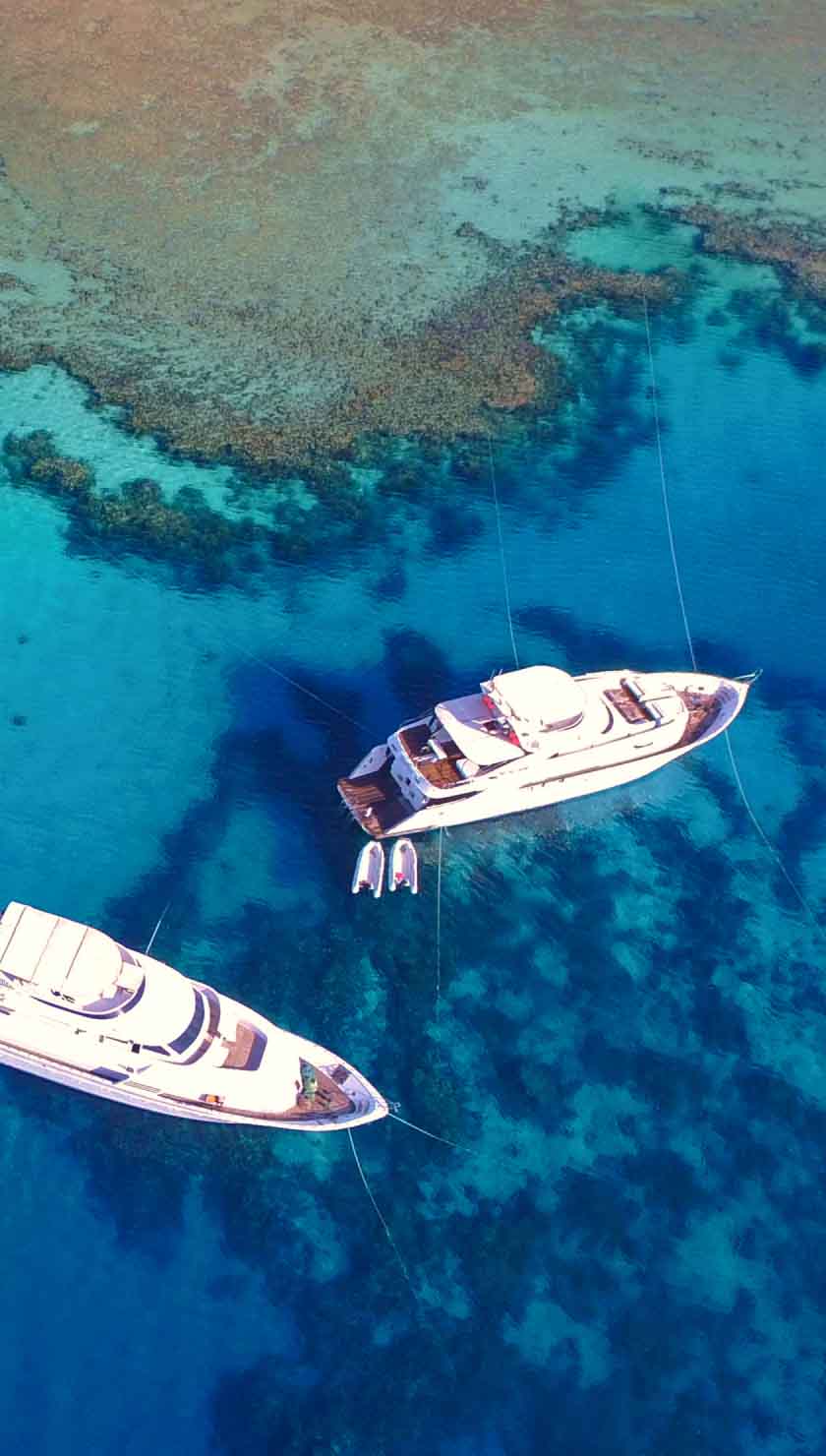What to experience underwater in Goubet al Kharab
A popular dive site in the area is called “La Faille” (the fault), named for being part of the tectonic fault between the African and Arabian plates tectonic that meet in this spot, and it is a remarkable setting for a dive.
Local reefs, such as Ras Eiro on the southern shore of the Gulf of Tadjoura, are home to a plethora of marine life, including 200 species of coral. Pelagic fish that live in the deep come to the shallow waters to feed, and they include whale sharks, other sharks, rays, and even dolphins.
Among divers, Djibouti is famous for its whale sharks, primarily juveniles but still impressive giants. The biggest fish in the ocean hang around here between November and February when the humidity and the temperature are slightly lower and more comfortable. The water temperature is quite comfortable year-round, and a thin wetsuit or a skin guard is enough exposure protection. Visibility can vary between seasons and dive sites, which is affected primarily by the currents.
TIPS FOR TRAVELLERS
Liveaboards will have equipment for rent, however bringing your own will save renting costs and is always more comfortable. The staff will need to be sure about your dive experience, so remember to bring along your logbook and certification cards.
There are three main languages spoken in Djibouti; French, Arabic, and Somali, however, in the more touristy places, there will be people who speak English, and the liveaboard staff will also speak English.
The local currency is the Djiboutian Franc; the exchange rate is around 196 Franc for 1 Euro.
The electricity plugs are the standard European two round pong plugs; type C / E with a voltage of 220 volts.
HOW TO GET THERE
Djibouti has its international airport; Djibouti Ambouli International Airport, from here flights depart to all the neighboring countries, Paris, Istanbul, Dubai, Egypt, Saudi Arabia, and Madagascar. It is located in the town of Ambouli and only 6km (5mi) from the city center. The liveaboards depart from the Djibouti Marina.
CONSIDERATIONS
The price range of the liveaboards which we offer on LiveAboard.com range from 160-200 Euros a night. Some of the extra costs which could involve dive gear rental, if needed, dive insurance, which is mandatory to have before joining our trips, and lastly, if you are an Open Water diver, you will need to pay an extra fee for guiding. You can join our liveaboard safaris as a snorkeler, and as a diver, you will need to be Open Water Certified with at least 20 logged dives.
When it comes to health and vaccinations, it is recommended to have your Yellow fever, and Typhoid vaccinations and also Malaria is a risk here. Please always consult a medical professional before traveling.











